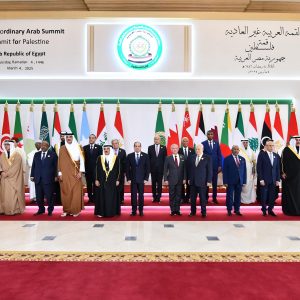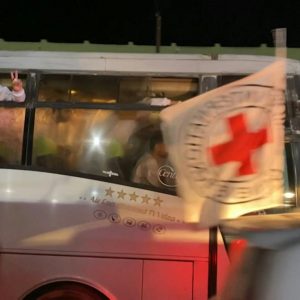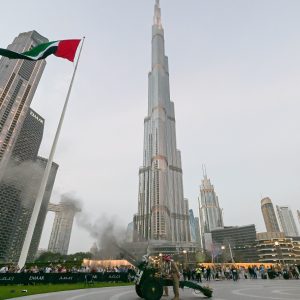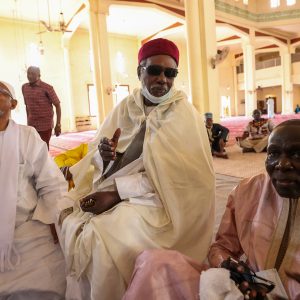‘We will burn your villages,’ Israelis chant during march on Jerusalem Day
Jerusalem, Undefined – AFP
Waving flags and chanting anti-Arab slogans, thousands of Israelis marched through occupied east Jerusalem’s Old City on Wednesday, with main streets empty of Palestinians fearing attacks.
The so-called Jerusalem Day flag march commemorates the Israeli army’s capture of the city’s eastern sector in the 1967 Arab-Israeli war, home to the Al-Aqsa mosque compound, Islam’s third holiest site, which Jews call the Temple Mount.
Thousands of Jewish nationalists, including far-right activists, marched through predominantly Arab neighbourhoods of the Old City, waving Israeli flags, dancing and occasionally shouting inflammatory or racist slogans.
“This is my country. I am the owner here. I’m the boss here, there is no Palestine,” screamed one marcher.
From early on Wednesday, police set up barriers near Damascus Gate, deploying more than 3,000 officers.
Most shops in the Old City were closed before the march, as streets emptied of Palestinians and filled with young Israelis, some carrying weapons.
“If you wander the streets, you will see how they (nationalist boys marching) work to provoke people, beat and break people”, Jalal Saman, a shopkeeper at the Old City told AFP before the march.
“Every year the same problems and events, but year after year they increase. The problems, the hatred has become greater,” the grocer said.
Moments later, a large group of boys insulted and threw garbage at Saman, prompting security forces to disperse the crowd before moving on to break up another clash.
Police said 18 people suspected of various offences, including assault, had been arrested.
Outside the Old City, families and youth stopped near the city hall in west Jerusalem to sing along to live music and dance in an atmosphere void of tensions and violence.
The march commemorates Jerusalem’s reunification under Israeli rule after it captured the city’s eastern half — home to the historic Old City and its sites holy to three Abrahamic religions — in the 1967 war.
– ‘Victory is ours’ –
For many Palestinians, the route through predominantly Arab neighbourhoods is seen as a deliberate provocation. Palestinians claim the city’s eastern sector as the capital of their future state.
By the time the march officially began, all shops on the route had been shuttered, and the worst clashes had passed.
Marching down the narrow streets of the Old City, some chanted “The people of Israel will live” or “The eternal people aren’t scared.”
Others entoned racist slogans such as “We will burn your villages” or “All Arabs can suck it”.
“Most of the people in the homes stayed home so as not to cause any friction with the settlers,” 62-year-old Nasser Moussa told AFP towards the end of the march.
Israel’s far-right National Security Minister Itamar Ben Gvir said at the march: “We send a message to Hamas. Jerusalem is ours. Damascus gate is ours. The Temple Mount is ours.
“With the help of God, the full victory is ours,” he said, as crowds cheered.
– ‘Rampage of settlers’ –
Police said they deployed officers throughout the city to “maintain public order, safety and secure property, as well as direct traffic” during the march.
As tight streets became packed with religious youth groups entering the Old City in waves, police had little space to prevent acts of vandalism on Arab businesses.
The march ended Wednesday evening at its normal terminus, the Western Wall, the holiest place where Jews can pray.
In 2021, Hamas launched a barrage of rockets toward Jerusalem as the march began, triggering a 12-day conflict with Israel.
On Wednesday, Hamas chief Ismail Haniyeh condemned the event.
“The rampage of settlers in Jerusalem confirms that Jerusalem is the focus of the conflict, and our people will not rest until the occupation ends and an independent Palestinian state is established with Jerusalem as its capital,” he said in a statement.
This year’s march came after nearly eight months of Israeli attacks on Gaza during which it has killed at least 36,586 people, mostly women and children, according to the local health ministry.










